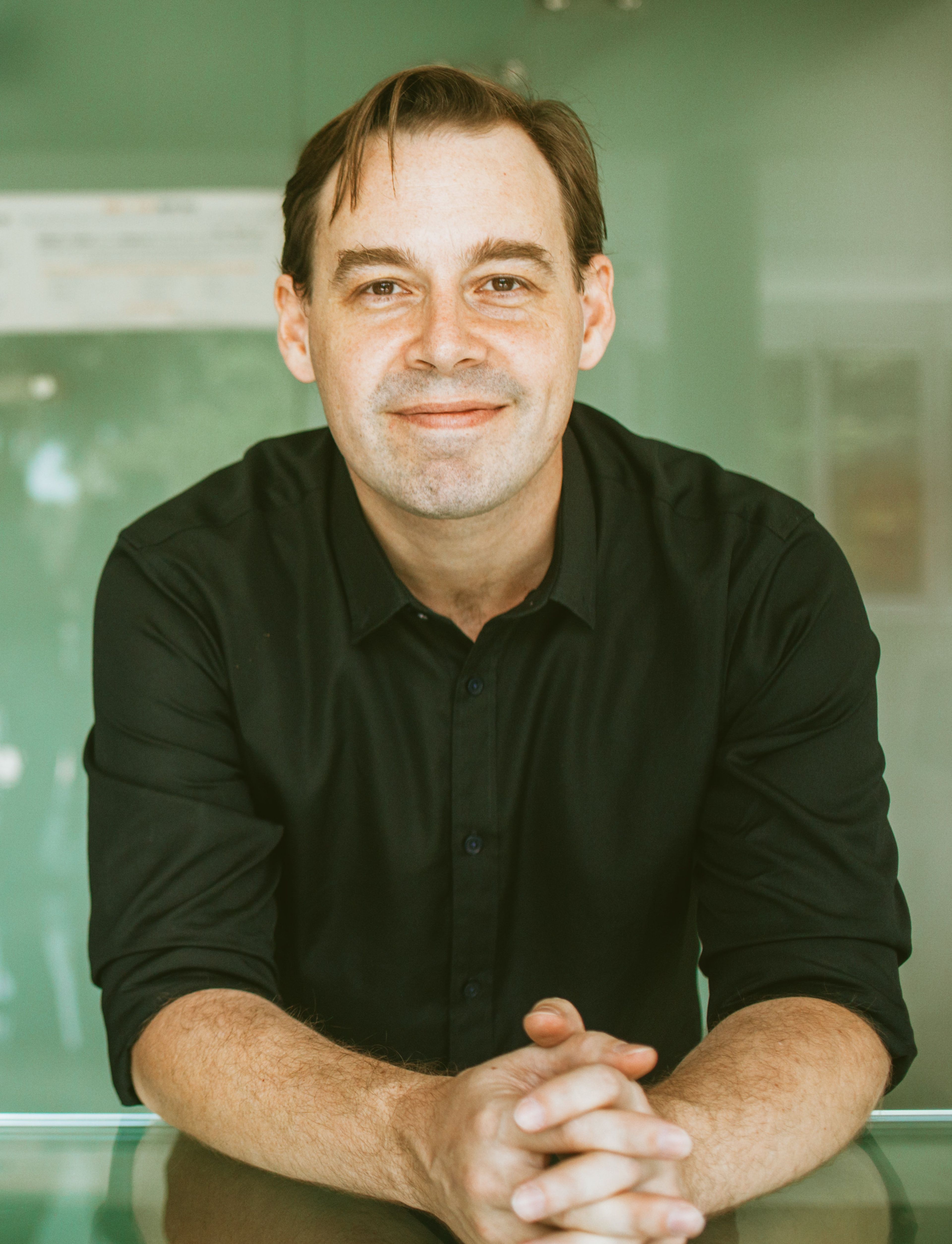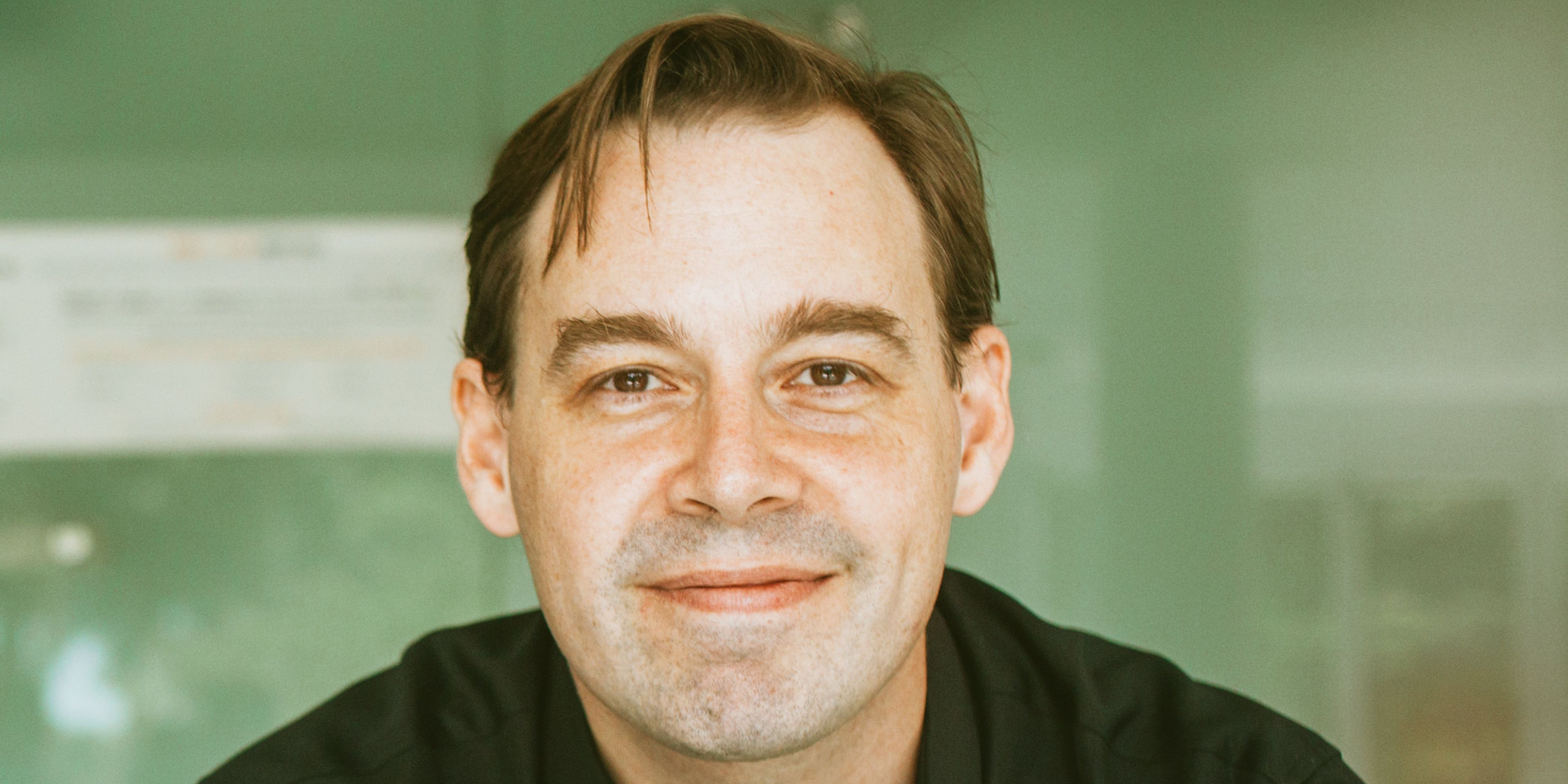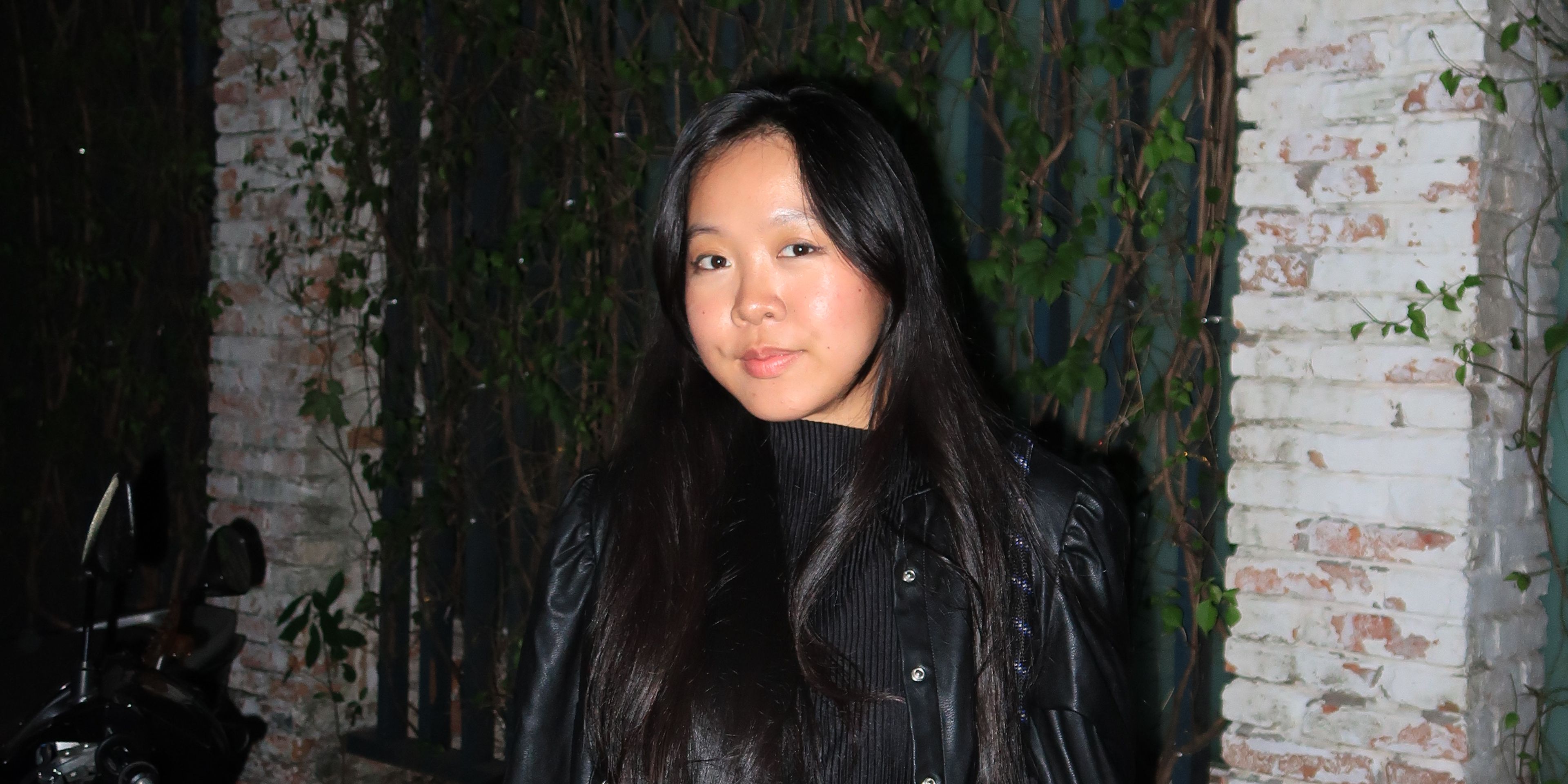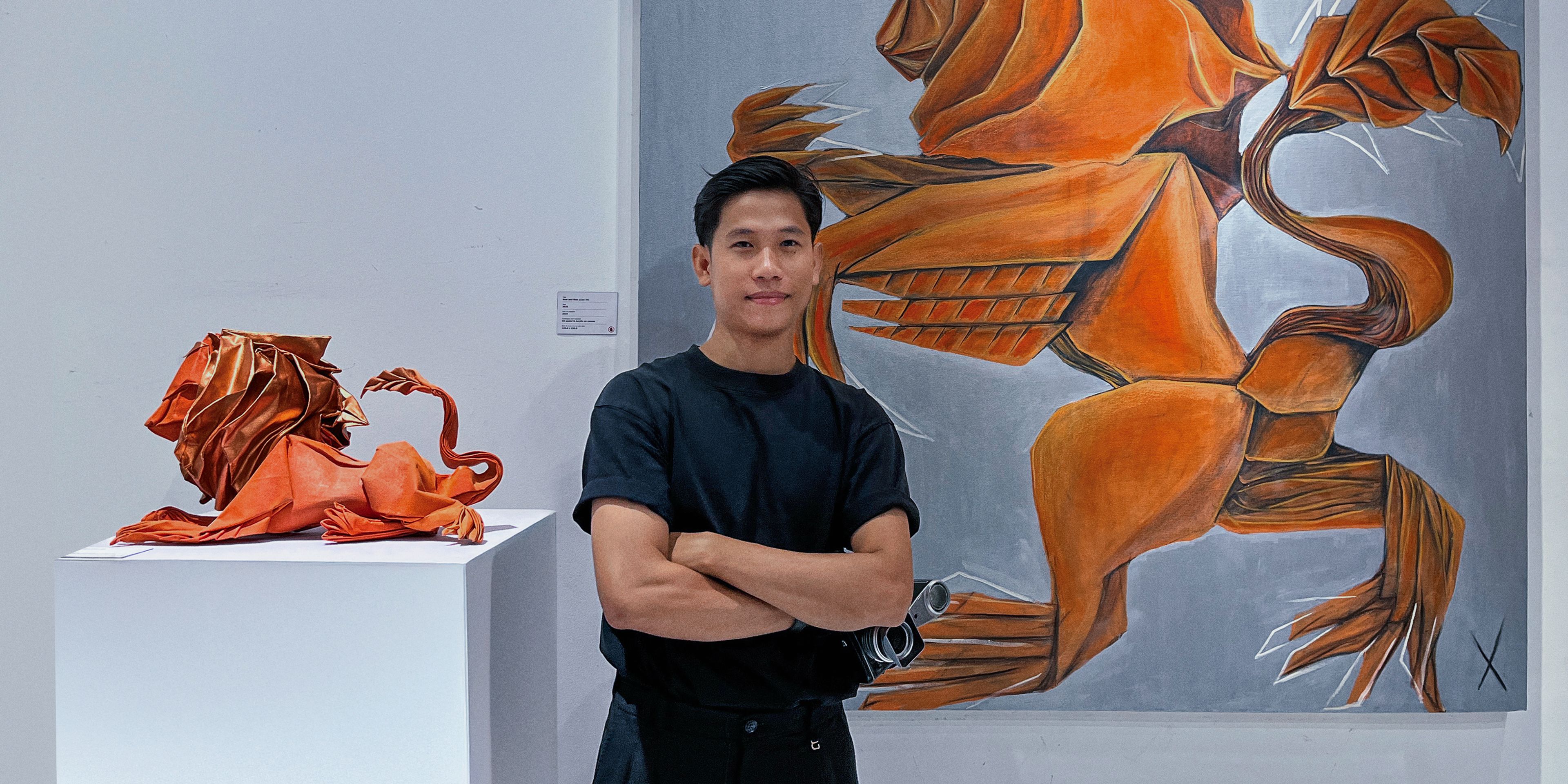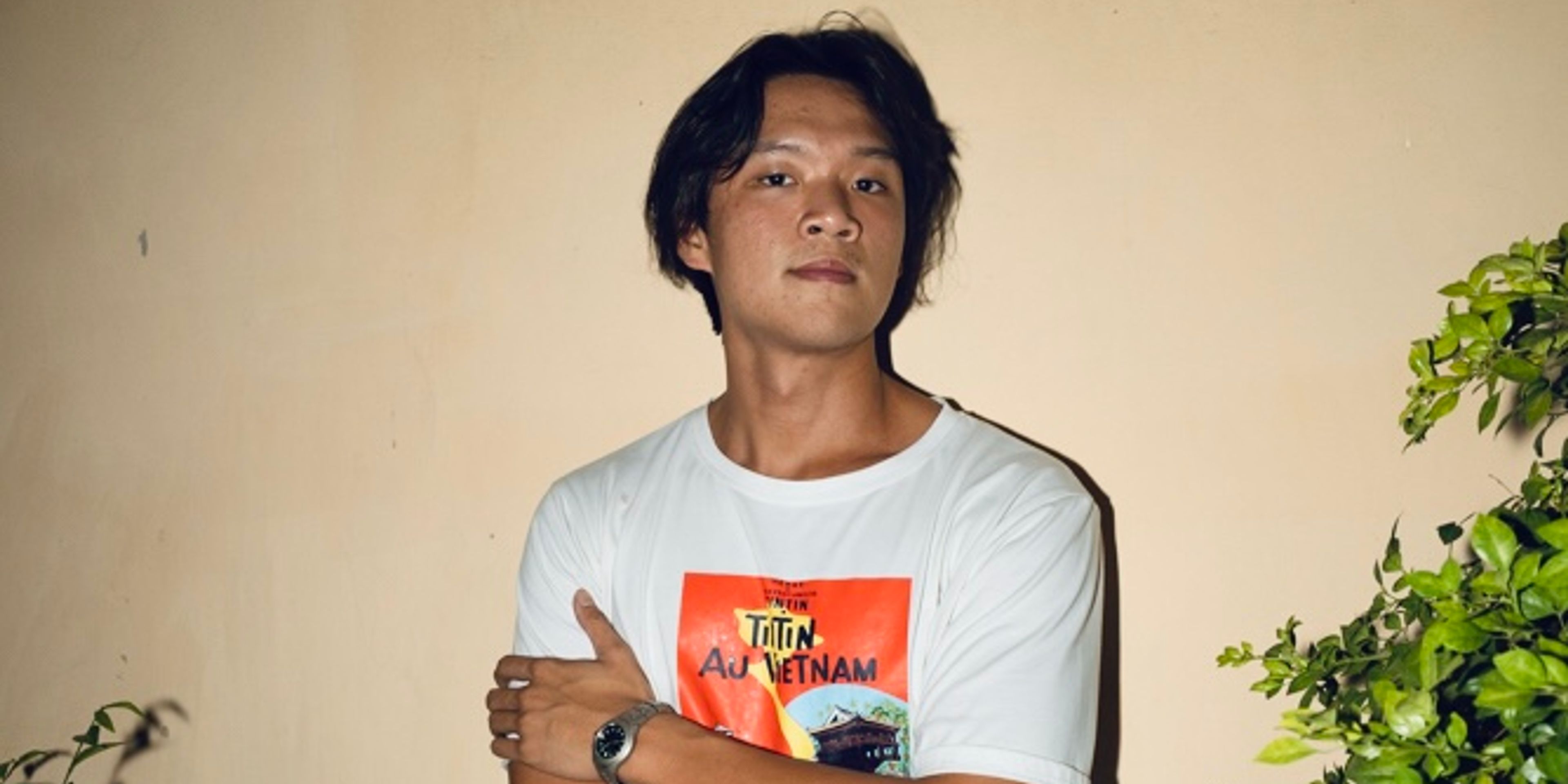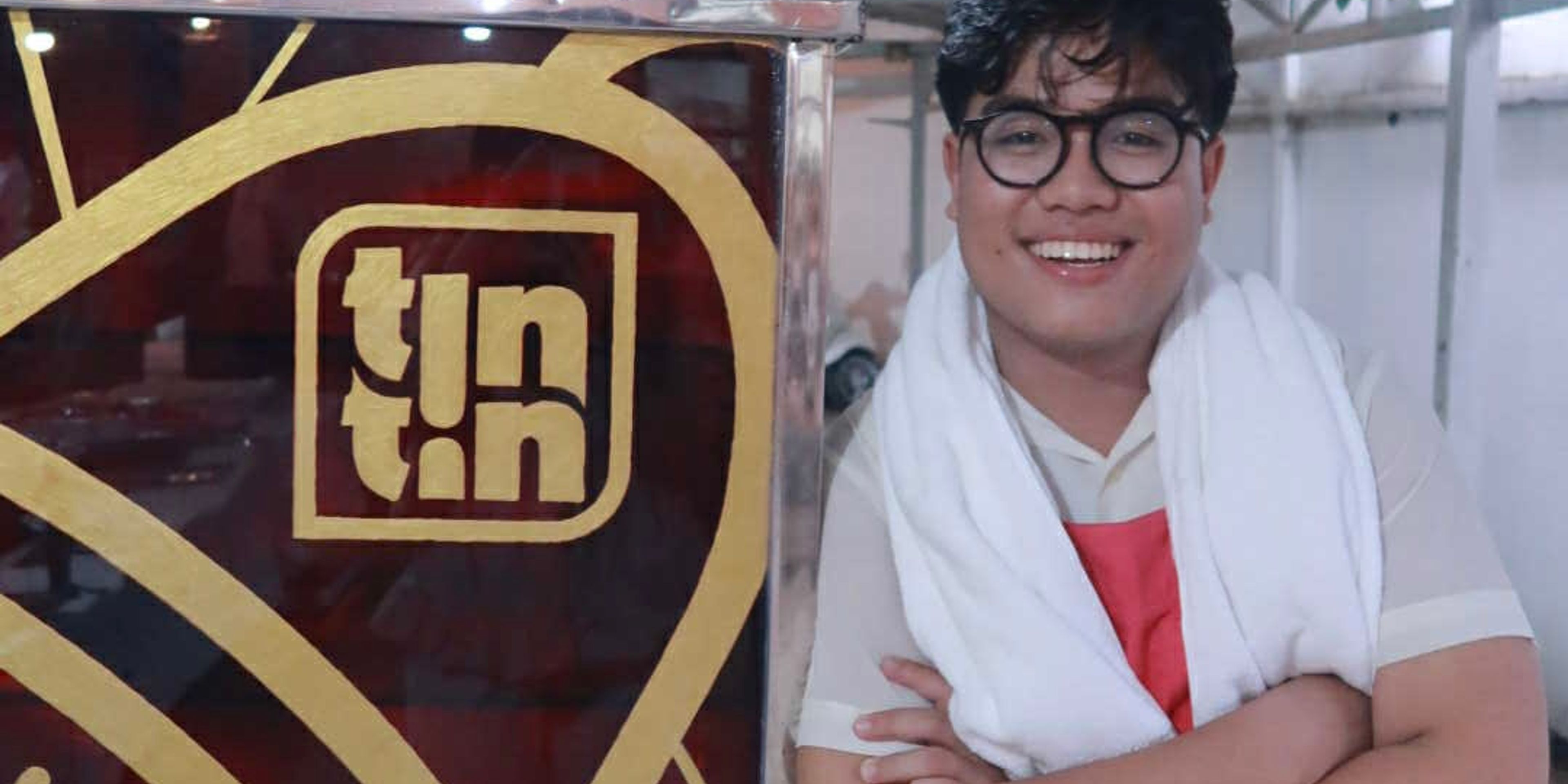"The work you do while you procrastinate,” said illustrator Jessica Hische, “is probably the work you should be doing for the rest of your life.” When he was younger, Michael Arnold admits he was too naive, too idealistic, and way too into himself. He spent a lot of his time writing, though — in his daily diary or letters to friends, family, and lovers — anything to avoid doing his homework. Combining his deep love for writing and music, plus having hung out with many musicians and writers throughout his formative years, by the time he left university he wanted to become one or the other. There was only one problem: he couldn’t play anything. “It was a choice of one,” he said. That one choice all those years ago led him to where he is today — living in Saigon working as Executive Editor of Tatler Vietnam, as well as Writer, Editor, and Founder of Metro Writers. Between that choice and the decision to meet with me to chat at Soo Kafe in District 1, is a story about discovering the work he was always meant to do.
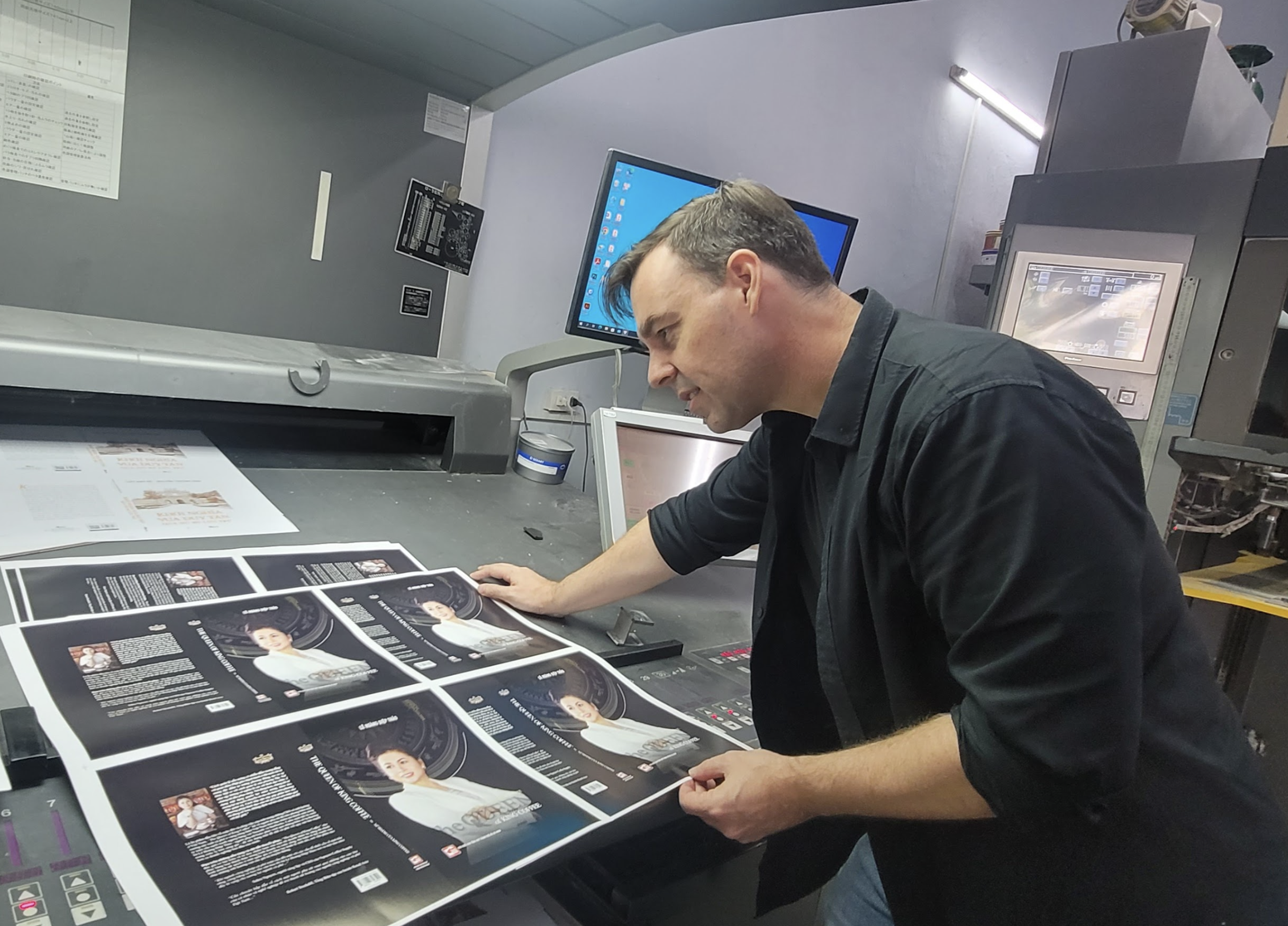
After graduating from university in New Zealand, Michael discovered another problem. His time spent studying Shakespeare’s Hamlet didn’t amount to much job security. As a result, he says he got a job in computers as part of a customer support team for an internet service provider, figuring it was at least a safe bet for the time being. All was normal until one day he saw an ad for an incredible job opportunity: teaching English in China. They pay for your flight! They give you an apartment! You’ll get to live in a foreign country! You’ll be paid! You’ll be respected in the classroom! “Why isn’t everybody doing this?” he wondered. Michael bought the ticket, took the ride, and soon understood why.
As he put it, if you spend a decade teaching English abroad and you do nothing on the side, then after ten years you will be in the exact same spot as you were when you started. Conversely, if you’re going to try to become a writer, you have to have the mindset of going all the way with it. Two years in, he made his choice. I’m quitting teaching. I’m not looking back. I’m going to make this work. 20 plus years later he’s still making it work. But, at the beginning it wasn’t working quite like it is today.
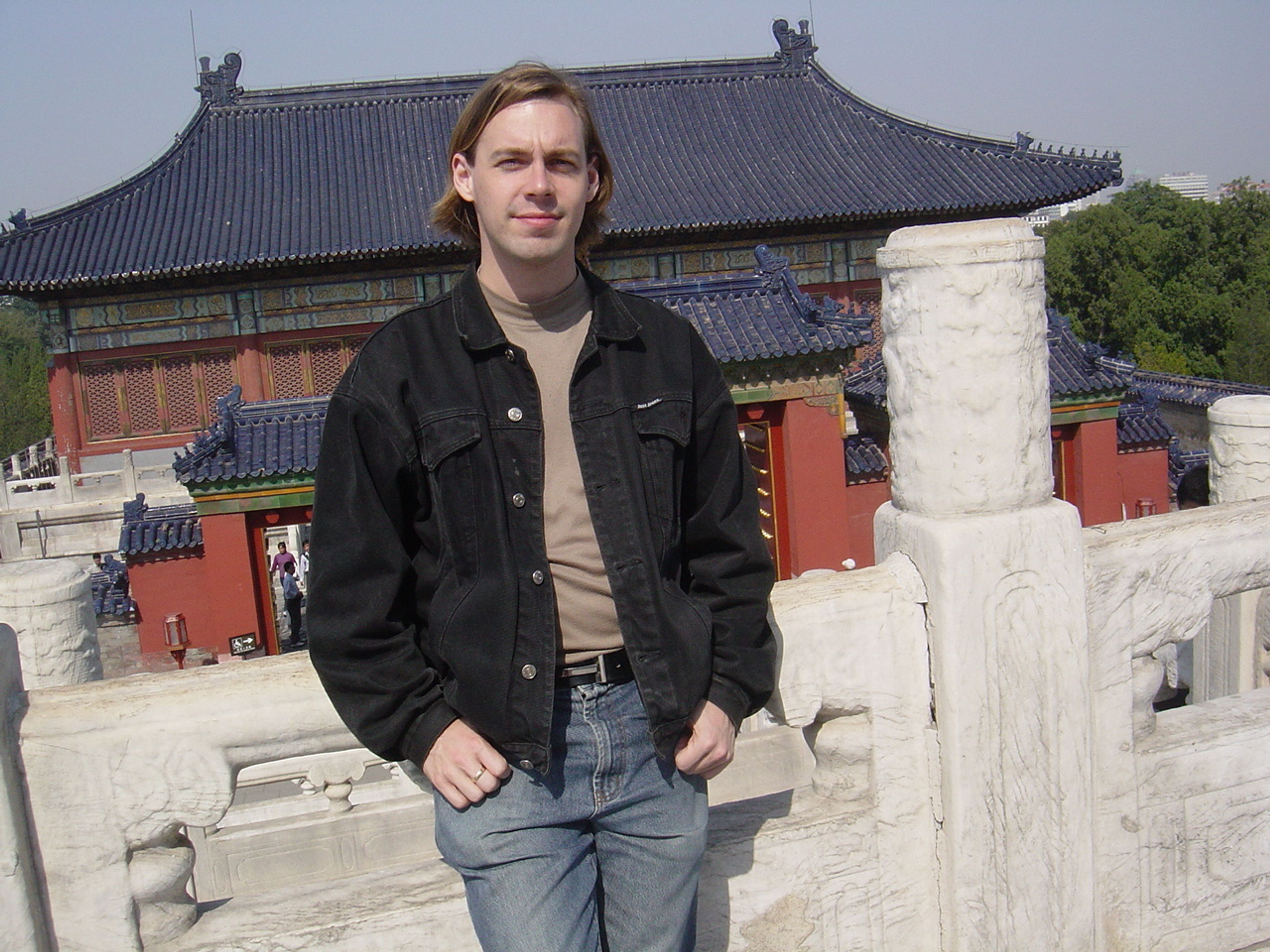
After he quit teaching, Michael ended up living in China for three more years. He was working as a freelance writer for magazines like That’s Beijing when he came across another incredible job ad: looking for writers for travel books. It was for Myra Quan’s China Through the Looking Glass series. A few years before the 2008 Beijing Olympics, Quan saw an opportunity and struck. Outside of China’s major cities like Beijing, Shanghai, or Guangzhou there are many places that don’t get the same coverage. Quan pitched to local tourism administration clients that she would hire crack foreign authors to write books promoting lesser-known cities to foreign tourists. In reality she was sending inexperienced freelancers like Michael offering $1000 for the privilege of working as a travel writer. A project would last around six months. One month on location, the rest finalizing the manuscript. Looking back, Michael says he was vastly underpaid when you consider the fact that Myra went on to pocket most of the money from her clients. She did roughly a dozen books over a three period and became a millionaire at 36. All that said, Michael points out the experience of writing about these "undiscovered" locations and being escorted around to incredible attractions, both famous and unknown, was something he would have done for free at the time.
Furthermore, during that time he developed a strong belief in the motto to travel slowly. Being on the road has this old-fashioned fantasy around it. It’s a chance to escape, break free, and for many, go somewhere fast. According to Michael, it’s also a chance to ask yourself what the hell you’re doing and what’s the point of all this? But, like it is for so many people you cross paths with, if your whole drive is to escape, seeking freedom at a breakneck speed, you’ll miss the signs. Like life, when you’re on the road you can have lots of experiences but miss its meaning entirely. In contrast, as Michael suggests, if you slow down, you’ll see there are signs everywhere.
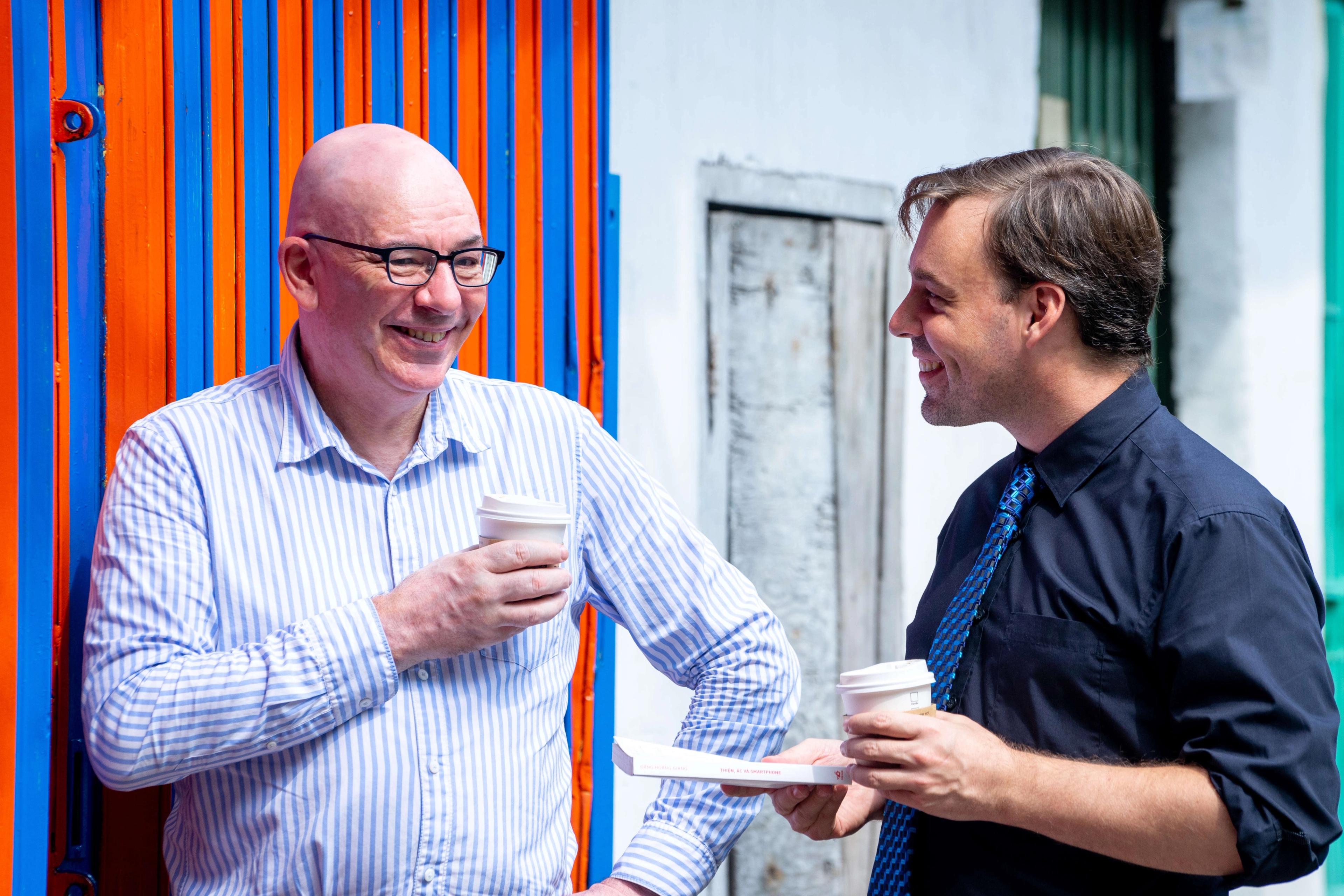
Beyond travel books, Michael wrote for a site called Travel China Guide, which ended up getting him a job in Saigon for a short-lived luxury travel company, Definite Travel. After that didn’t work out, he started freelancing for Word Vietnam, one of Saigon’s rivaling expat magazines alongside AsiaLife. In addition, around the same time, Michael’s brother Robert followed him to Saigon. Robert is the founder of Inside Retail magazine, an industry publication that originally focused on Australia and New Zealand. However, he wanted to move to Asia and after visiting Michael in Vietnam, he made his choice. Now together again in the same city, the brothers were captured by the idea of a magazine that had a stronger editorial focus on profiling people in the community. Once Robert was officially based in Vietnam, Michael introduced him to Word editor Christine Van. Before you know it, Ơi Vietnam was born.
Their vision was to do something similar to the work they did at Word: assemble a team, put some money in, and do it all honestly. As Michael explained, past magazines targeted expats exclusively, but Ơi wanted to reach people who wanted to read in English, not just backpackers and overseas businessmen but also many Vietnamese English readers as well. They started off by printing thousands of copies per month, effectively burning cash. He said it wasn’t until after half a dozen issues they began to turn a profit. However, because reading behavior was changing at the time with more people reading digitally, whether it was on a tablet or a smart phone, advertising companies seemed to favor online outlets. As a result, many that started with digital platforms, both in Vietnam and globally, were beginning to attract advertisers over print magazines. This shift led Michael to start looking for other ways to make money.

Michael and his team pivoted to become Metro Solutions. They produced copy writing, made brochures, and created posters for companies. Useful work, sure, but not the kind that stirred him inside. Then he started noticing the ghostwriting business gaining traction in the US. This made him reflect on his days of creating travel books in China, where such writing made him feel alive. He started to wonder. What if there was a way to do something similar but better? What if, instead of just one or two writers, there’s a whole team working together? Writers. Editors. Photographers. Designers. The whole gamut crafting together the smallest details of a person's life like a finely-tuned kitchen staff obsessing over each grain of rice on a plate. “It was one of those ideas you have in the middle of the night that sounds so good but when you wake up you’re like, what the hell was I thinking?” he says.
What he was thinking about was people. He wasn’t thinking about business. He wasn’t thinking about doing the things we’re supposed to be doing like focusing on making money. He was thinking about people’s lives. Their stories. All the thoughts and feelings and memories that make a human being a human being. And just like in university when he was writing letters in the middle of the night instead of doing his homework, doing what he was supposed to be doing, he was actually doing what he really should be doing. Not just completing tasks, checking boxes, and making marketing copy. He was being called towards the real work, his life task: writing — about an individual, to an individual. And those late-night ideas—the ones that pull you away from what you’re supposed to be doing—are often the ones worth following. They’re the calls to adventure that we would be wise to answer. Michael did. What would become Metro Writers is a viable business model that has allowed him and his team to write compelling human-led stories. After all, as Michael notes, books, particularly biographies, carry a cultural gravity to them. They are a window into someone’s soul and a mirror to our own.
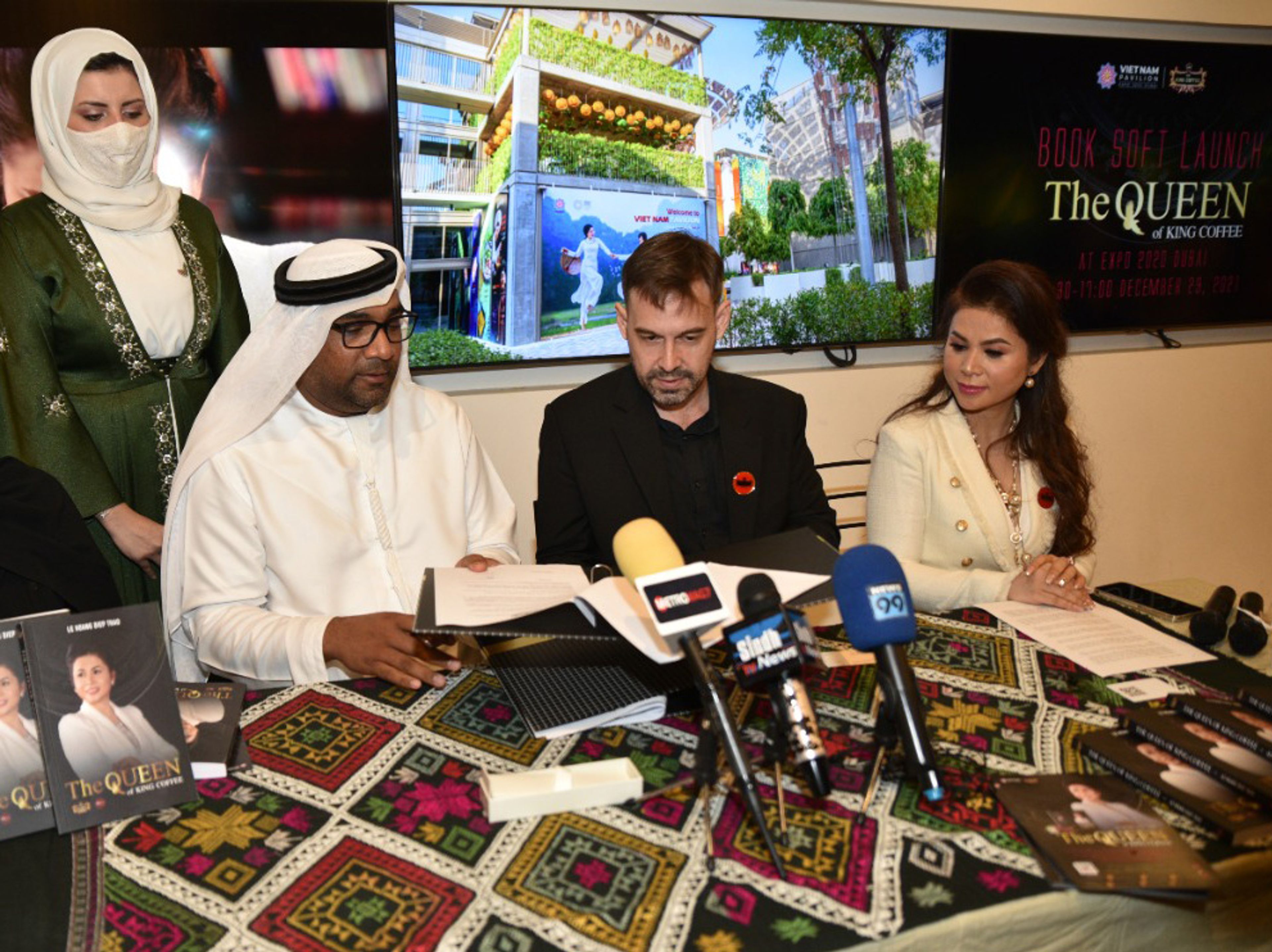
All that said, when you’re attempting to do something that hasn’t really been done in the current market you’re in, people have no idea about the real cost — not just money, but time, for both creator and client. In other words, when the rubber meets the road you quickly find out how difficult it is to gain some momentum. Luckily, they managed. It wasn’t too long before Metro Writers landed their first real project: a biography on Vietnamese-American chef, Jack Lee. Born in Saigon in 1970, Lee moved to the US at age 10, studied at the California School of Culinary Arts before landing a job at the Hotel Bel-Air. Later on he gained notoriety by doing private catering events for celebrities in Hollywood earning him the nickname Đầu Bếp Hollywood (Hollywood Chef). After he moved back to Vietnam, he met Michael, and immediately said yes to working with Metro. Alongside author NPD Khanh, who Michael considers to be the most hardcore and prolific writer he’s ever worked with, they published a biography, Chef to the Stars: The Rise of Jack Lee.
From there, more projects came to life. Mặc Nưa, a 25-year retrospection on elite fashion designer Võ Việt Chung that detailed his restoration of the lost cultural art of jet-black Vietnamese silk. A translation of 1.2.3.4-75 A War Report, a prominent journalist’s wartime analysis of the months leading to the defeat of the southern Vietnamese administration. Letters in Love and War, a collection of translated love letters between two distinguished Vietnamese writers. The journal of a Vietnamese mother’s quest to achieve restorative surgery for her adopted son, who had been torn apart by wild animals.
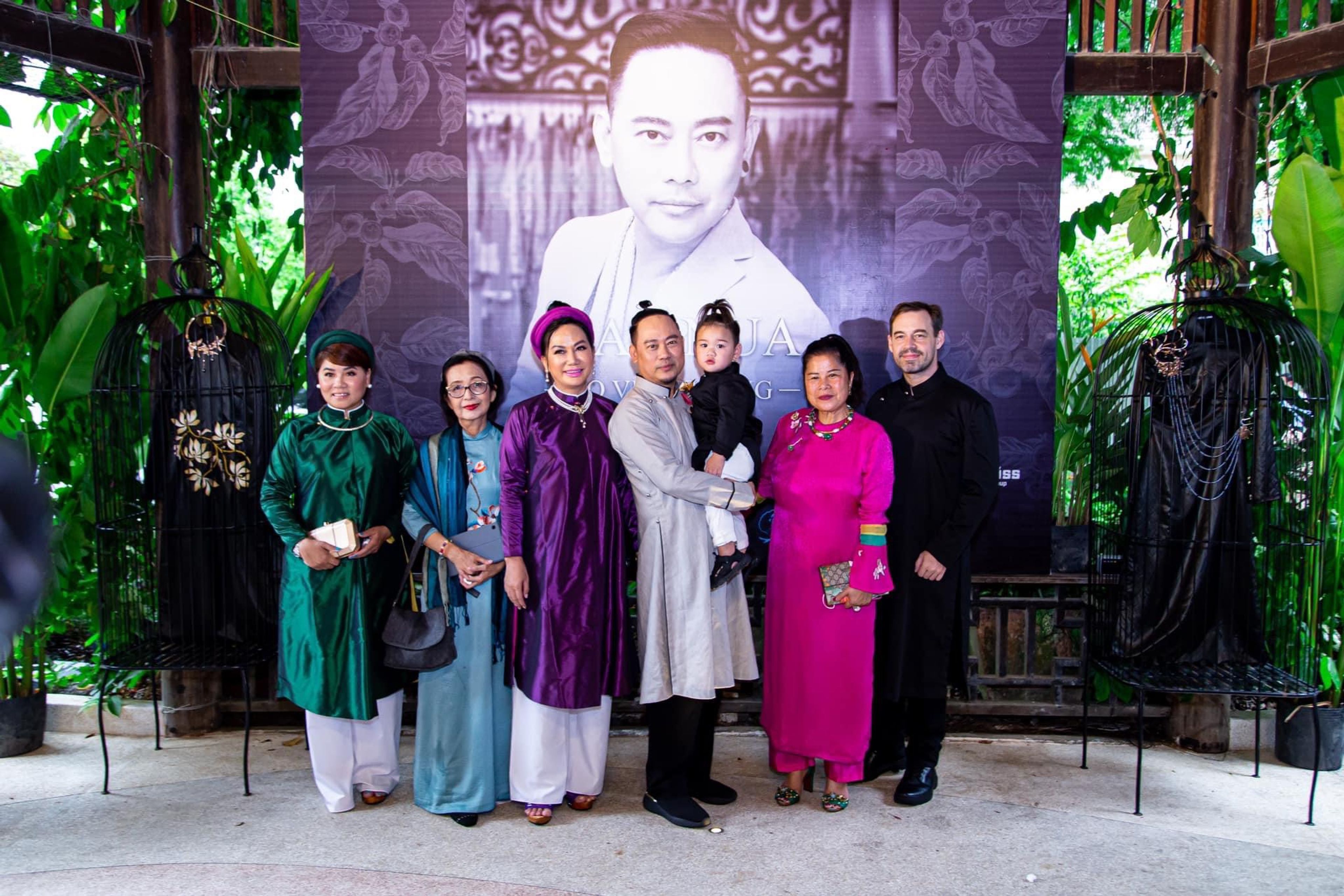
Then, as a result of Covid, business slowed down. But for Michael that period was transformative. For someone that believes in traveling slowly, the world slowing down to a halt felt good. He could be alone with his thoughts. Yet he wasn’t completely alone. When you have the luxury of being surrounded by books, you’re never alone. Through reading, you get to have conversations with the wisest minds across time. Beyond books, music resonated with him the most during that period. Michael got himself a nice pair of headphones and allowed himself plenty of quality time to sit, listen, and pay attention to music at a deeper level. A musician whose complicated and well-executed layering he grew to adore in particular was Mike Oldfield, an electric guitarist from Britain who played a lot of 70s progressive rock. Approaching the age of 50 years old at the time, the period Michael says you start to really feel your age, spending that much time alone allotted him to gain a higher sense of self. He recognized the maturity he’s acquired, the discipline he’s forged, the command of language he’s developed, but above all, his newfound sense of self helped him understand others and remind himself why he’s still doing what he does. “I felt such gravity,” he says. By the time things started picking up speed again and the adventure of writing more books resumed, he had come out the other side with an ever deeper appreciation for people, stories, and traveling slowly. Traveling slowly allows you to take more in and the more you take in the more you understand that you don’t have to know exactly where you’re going. But, if you look around and everything still feels weird and exciting and inspiring at the age of 50 then it seems you’re right where you need to be. As it goes he is both where he feels he needs to be and wants to be.
Michael has since continued growing Metro Writers at a steady pace. He says they don’t do a high volume of books. But that’s not the point. The real joy comes from the intensive, long-term projects that immerse them in learning, writing, and sharing people’s life stories. After nearly a decade of work with Metro, as of March 2025, he was hired to become Tatler Vietnam’s English-language Executive Editor. Tatler has a storied history of over 300 years. The brand dates back to the early 1700s in London as a coffeehouse gossip journal. It was relaunched at the beginning of the 20th century focusing on British high society, theatre, art, fashion, and lifestyle. In the 1970s, Tatler Asia made its way to Hong Kong, Singapore, the Philippines, Malaysia, Indonesia, Taiwan, Thailand, and then eventually Tatler Vietnam was born in 2024.
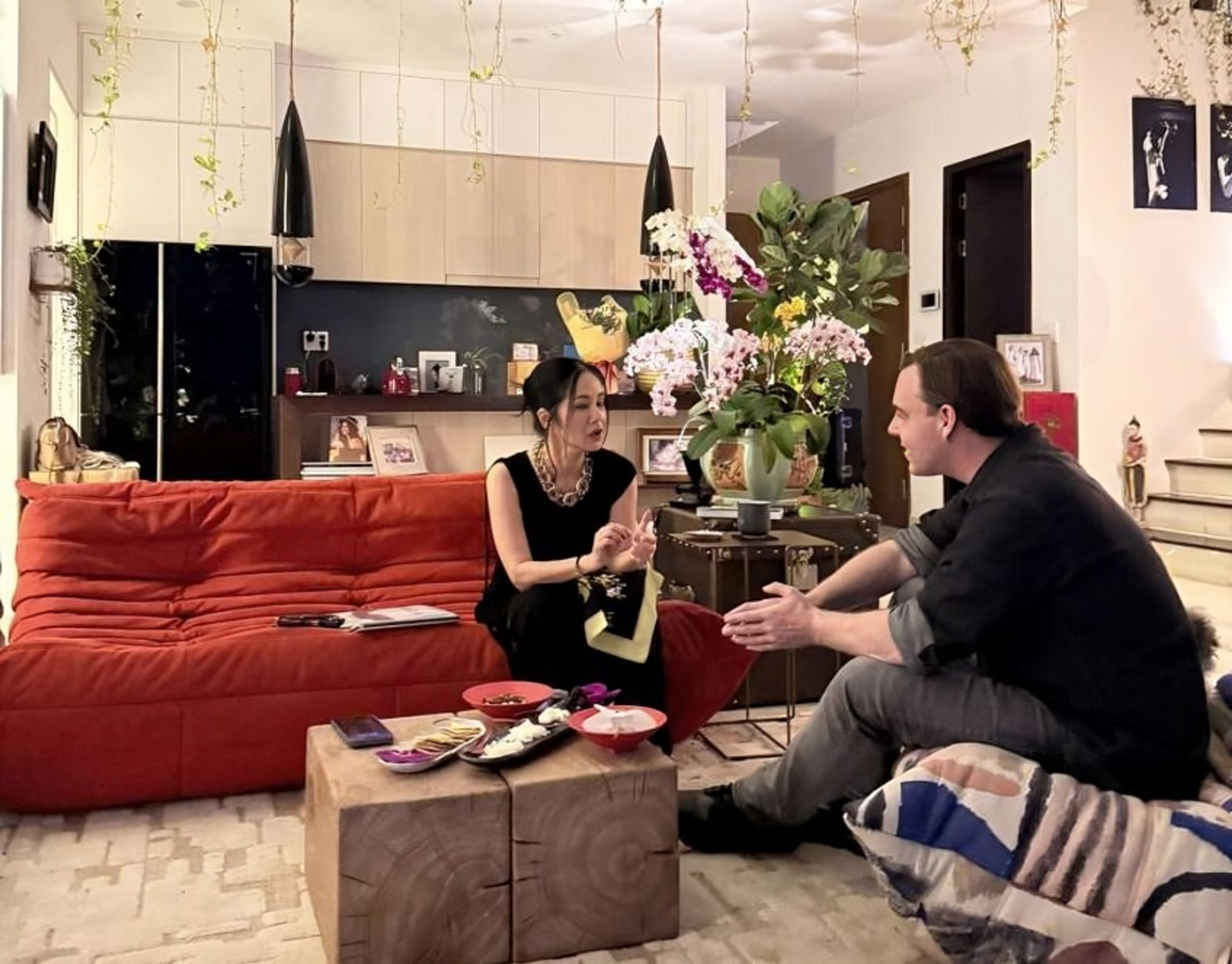
For Michael, his current role presents a chance to go back to writing tight, short-form human-led stories like he used to do for Ơi Vietnam. Plus, like his former travel writing days in China, Ơi Vietnam, and Metro Writers, Tatler Vietnam gives Michael a similar edge with an even more distinguished platform: a strong brand that lets him approach interesting people who are open and willing to share their life stories at scale. So far he’s written profiles on Vietnamese diva Hồng Nhung, luxury hotelier Arnaud Zannier from France, the Brazilian designer for Louis Vuitton, Humberto Campana, and American-Vietnamese luxury goods & aviation magnate, Johnathan Hạnh Nguyễn, among others.
Inevitably, the challenge of walking the tightrope between art and business feels even greater. But it appears to be even weirder, even more exciting and inspiring, and even more proof that after traveling slowly for so long he is exactly where he needs to be. In a way, he’s still doing what he was doing back in university: writing letters. Only now, instead of him being too naive, too idealistic, and way too into himself, he has experienced firsthand the power of telling other people’s stories. By the end of our chat, Michael gave me the perfect closing line without even planning it: “I wonder how long I can avoid doing my homework.”
